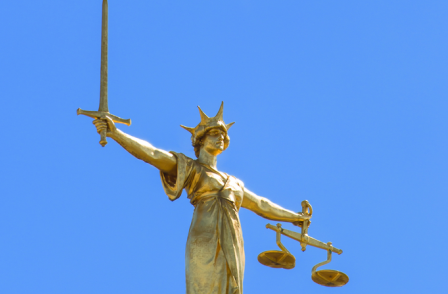
Victims of female genital mutilation will be entitled to lifelong anonymity in the media under new provisions which will come into force next month.
The anonymity is granted under a new section 4A and a Schedule to Female Genital Mutilation Act 2003 which have been inserted by section 71 of the Serious Crime Act 2015.
The new provisions make it a criminal offence, punishable on summary conviction by an unlimited fine – or a fine up to £5,000 in Northern Ireland – to publish anything which would be likely to lead members of the public to identify a person as an alleged victim female genital mutilation (FGM).
The anonymity also covers the victims of offences of aiding, abetting, counselling and procuring the main offence, as well as victims of the new offence of failing to protect a girl from the risk of FGM.
It also covers anyone who actually agreed to an act which gives rise to an alleged offence.
The provisions – which come into effect on 3 May – reflect those in the Sexual Offences (Amendment) Acts of 1976 and 1992 giving lifelong anonymity to the victims and alleged victims of sexual offences.
They were introduced following criticism by Sir Brian Leveson, President of the Queen's Bench Division, in the Divisional Court in the case of in the Divisional Court in the case of R, on the application of JC and RT,v Central Criminal Court and Others in April last year.
Sir Brian said the statutory scheme for the protection of children and young persons which was in force at that time – section 39 of the Children and Young Persons Act 1933 – "simply does not seek to address the different issues that arise".
He went on: "Victims and witnesses need individual and tailor-made protection within the criminal justice system: an example of such a need relates to the victims of female genital mutilation, recently the subject of calls for anonymity."
It was, he added, "for Parliament to fashion a solution: the problem requires to be addressed as a matter of real urgency".
Under the new provisions for victims and alleged victims of FGM, the anonymity applies "where an allegation has been made" that an FGM offence has been committed.
The new Schedule 1 to the 2003 Act bans the publication of anything likely to lead members of the public to identify the victim.
The Explanatory Notes to the Serious Crime Act 2015 state: "The prohibition covers not just more immediate identifying information, such as the name and address or a photograph of the alleged victim, but any other information which, whether on its own or pieced together with other information, would help identify the alleged victim."
The offence is a strict liability offence – the prosecution does not have to show that the defendant intended to identify the victim.
"Publication" is defined in the Schedule as including "any speech, writing, relevant programme or other communication (in whatever form) which is addressed to, or is accessible by, the public at large or any section of the public".
This definition would, according to the Explanatory Notes, include traditional print media and broadcasting as well as the internet, and social media such as Twitter or Facebook.
A trial judge may lift the restrictions and the victim herself may consent to waive her anonymity – as long as she is over the age of 16, gives written consent, and has not consented as a result of unreasonable interference with her peace and
comfort.
Those who can be prosecuted for breaching a victim's anonymity are, for newspapers or other periodicals, whether in print form or online, and radio and television programmes, any proprietor, editor, publishers or broadcaster.
Email pged@pressgazette.co.uk to point out mistakes, provide story tips or send in a letter for publication on our "Letters Page" blog

